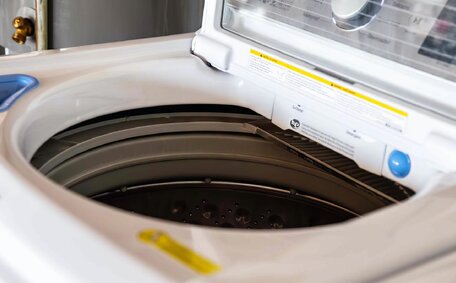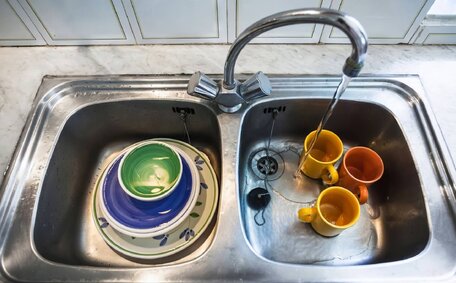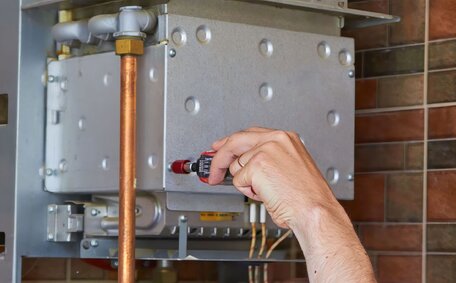Common Causes of Toilet Blockages
Various factors contribute to repeated toilet blockages, such as:
- Flushing non-flushable items like baby wipes, paper towels, hygiene products, and other items which are common causes of clogged drains
- Tree roots invading and inflicting damage on your pipes
Comprehending the reasons why your toilet endures repeated clogs, frequently due to persistent issues with your plumbing system, can avert potential toilet clogs and overflows, unpleasant scents, and potential harm to your plumbing. The prevalent use of older lowflow toilets can result in a weak flush, which might be contributing to toilet clogging in your home’s bathrooms more frequently; hence, it’s essential to know your toilet’s flushing capacity and efficiency. Parramatta’s mix of ageing pipes and clay-based soils also raises the potential for clogging in your house drain.
Preventing toilet blockages involves careful use and regular maintenance, along with an understanding of how habits can affect drain health. Understanding the reasons why toilet consistently experiences clogs is key in dodging costly issues that could harm the integrity of your drain line.
To forestall complications in your lavatory, it’s essential not to flush anything other than human waste toilet output and toilet paper down the toilet drain. Annual clear-outs are essential in removing waste toilet paper and debris within the drainage system.
Excessive Toilet Paper Usage
Using too much toilet paper increases the risk of blockages, affecting the entire plumbing system in your residence. Despite toilet paper’s design to disintegrate, excessive use is one of the reasons why toilets frequently encounter drainage impediments. Excessive toilet paper use, a common cause of drainage problems, affects about 20% of households.
Using only the necessary amount of toilet paper is key to preventing blockages when flushing. Taking a conservative stance by using approximately 4-8 sheets of toilet paper can apply suitable flushing pressure to effectively flush your toilet without issues.
Use only what’s necessary when it comes to your toilet paper, a critical step to ensure a blockage-free toilet. Folding over or scrunching up large wads of paper can result in too much bulk down drain, leading to clogs. For substantial cleanups, a half flush can manage larger paper volumes and reduce blockage risks. This method allows some paper to break up and pass water down through before sending the remainder down, efficiently curtailing potential clogging.
Selecting a septic tank safe, fast-dissolving variety of toilet paper can help reduce blockage formation, streamlining the process through your toilet. Opt for products like toilet paper labelled as “sewer safe” or “septic safe” to ensure efficient breakdown and prevent clogged drains. Additionally, annual drain cleaning is vital to remove buildups and avert significant blockages.
Flushing Non-Flushable Items
Flushed inappropriately, non-flushable items can clog your entire plumbing system, impacting areas as far as your kitchen sink. Even products labelled 'flushable’ can lead to blockages if they fail to disintegrate quickly. Common items that should not go down your toilet in Parramatta include:
- Baby wipes and moist toilet tissues
- Paper towels, napkins, and tissues are among the top culprits of blockages.
- Cotton balls, pads and swabs
- Dental floss
- Hair
- Condoms
- Cigarette butts
- Sanitary pads and tampons, which should never be flushed
- Bandages and plasters
- Cleaning wipes
- Medications
- Diapers
Disregarding this advice risks clogging and damaging pipes, impeding water flow and creating blockage risks throughout your home’s plumbing. Water may not flow freely if debris accumulates in the branch drain, gradually narrowing the pipe. If solids become entrapped, backing up through your system, it might be time to sort out your plumbing with specialists.
Instruct children and guests on the importance of not sending unsuitable items down toilet to avoid any problems, adhering to just toilet paper to stave off blockages. Routine drain maintenance helps prevent small buildups, but if an overflow occurs due to blockages, contact a plumber promptly.
Provide bins for disposables; avoiding the flush of non-dissolvable items mitigates clogging risks.
Accidental Flushing of Foreign Objects
Unexpected trinkets, like toys, coins, and tiny knick-knacks, that fall into the toilet and subsequently get flushed by youngsters, can create chaos within the plumbing. Items such as Lego pieces, marbles, and hair accessories can accidentally enter the plumbing and cause blockages. Such items can end up causing significant blockages through drain lines within your plumbing.
As they travel through the toilet trap and venture into the pipes, foreign objects can become lodged in joints or bends, indicating it might be time call in professionals for extraction. A mass of objects can quickly restrict water flow, leading to backing up and overflow, so when it’s time to call plumber experts, don’t hesitate to do so.
Prevent accidents by keeping the toilet lid closed, possibly secured with childproof locks.
Remove bathroom items near the toilet to prevent accidental drops into the bowl. Installing self-closing toilet seats reduces the chance of objects accidentally falling in, offering added protection. Check bowls before flushing as a precaution.
If an object falls into the toilet causing it to overflow or back up, halt bathroom use and turn off the water supply immediately. Attempting to use a toilet auger or plunge your toilet risks pushing objects further into pipes. Reach out to your local skilled professionals today to help find your and remove lodged items with specialised drain cameras and tools before serious clogs occur.
Regular Maintenance to Prevent Blockages
Regular maintenance of your drain pipes significantly helps prevent toilet blockages. Simple acts such as inspecting for leaks, clearing drain covers, and cleaning fixtures can become preventative measures against buildup that leads to clogs. Annual cleaning can clear drain pipe build-up, preventing blockages caused by low water pressure, a common plumbing issue to be watchful for.
Hard water leads to mineral deposits within your drains and can obstruct vent pipes, negatively affecting drainage. Over time, calcification may constrict your toilet vent, resulting in limited drainage and reduced water flow. A water softener helps reduce water hardness, preventing mineral buildup that can affect your home’s plumbing.
Water used in your household carries sediments, which can cling to pipe walls and contribute to clogs.
Other tips include:
- Conduct weekly checks of your toilet tanks to ensure optimal flush durations and refill frequencies.
- Inspecting drain covers and eliminating stuck debris, particularly when toilet overflows or presents other signs of a blockage
- Monthly drain cleaner application helps prevent grease and organic matter buildup, thus protecting your drains.
- Replacing old pipes and fixtures over 10 years old
- Having your plumber unclog your drains annually as preventative maintenance
Addressing minor issues quickly, especially in your sewer lines, can prevent costly blockages and keep your plumbing system working efficiently. Proper maintenance of your main sewer line can save money and decrease the likelihood of disruptive clogs.






